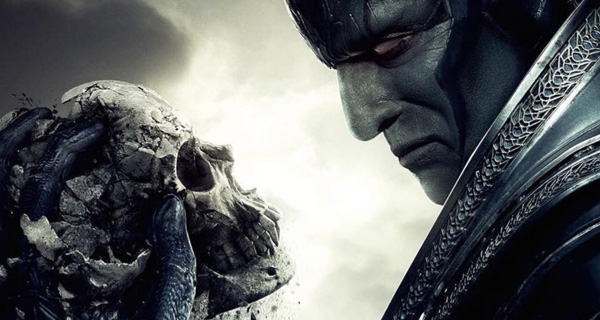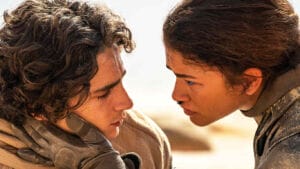The X-Men film series is the longest running superhero movie franchise. Yes, the likes of Superman and Batman have been on the big screen for far more years, but for the past 16 years the X-Men franchise has existed within just one universe. This comes with some caveats: for one, the timeline is pretty odd. There was the first trilogy — taking place in modern day — then X-Men: First Class rocketed the series back to the 60s in what could’ve been a reboot or a prequel, until X-Men: Days of Future Past clarified that the new trilogy was indeed a reboot by erasing the events of the original trilogy from history.
The other caveat: varying quality all across the board.
As it stands, there are nine X-Men movies: the original trilogy, the reboot trilogy, two spinoffs starring the franchise’s most popular character Wolverine, and a spinoff starring its most vulgar antihero Deadpool.
Let’s rank them all!
- X-Men Origins: Wolverine (2009)
Yeah, this movie is an unmitigated mess. Let’s get its cardinal sin out of the way: it sewed Deadpool’s mouth shut and made him a super zombie that could shoot lasers from its eyes. Dear god, why?
Anyway, constant studio intervention infamously ruined the production process of this movie. The result is violently tone deaf, has a laughably self-serious screenplay, and provides painfully dumb explanations for the origins of many franchise staples. Hugh Jackman deserved better (which he’ll get later on in the list!)
- X-Men: The Last Stand (2006)
I will never understand why Hollywood studios keep hiring Brett Ratner, the master of the mediocre. Every movie he’s directed walks a line between horrible and “fine enough, I guess”. X-Men: The Last Stand — the third in the original trilogy and the first without founding director Bryan Singer — is no exception. It’s the non-offensive kind of bad: there’s a good movie buried somewhere, but it’s dragged down by a complete lack of subtlety in both the dialogue and the action.
- X-Men: Apocalypse (2016)
Speaking of the series’ original director Bryan Singer, his fourth and latest addition to the X-Men universe is unfortunately his weakest. The young cast continues to be a wonderfully talented ensemble, but Singer seems to be awkwardly trying to catch up to the loud superhero showcases all too common today. Consequently, an overblown villain, an over-reliance on CGI, and stilted dialogue carried over from the series’ previous movie blur his vision. Read our review here.
- X-Men: Days of Future Past (2014)
What exactly did the prequel to Apocalypse do wrong with its dialogue, you ask? I’ll tell you, inquisitive ranking reader! Days of Future Past’s screenplay has an annoying tendency to use dialogue only to forward the plot rather than color the characters. This problem marks the beginning of an intense focus on action set pieces and ignorance of character development. Not good for a movie featuring a team of interesting people.
- The Wolverine (2013)
Ah, here’s where Hugh Jackman gets his due. Continuing in the series’ wise tradition of pretending Origins: Wolverine doesn’t exist, The Wolverine tells a personal story about the universe’s most charismatic and mysterious character. The Japanese setting is detailed enough to add a distinctly attractive tone to the film and the standalone three-act arc is skillfully done for the most part. The third act, sadly, devolves into mindless fighting that leaves a bad taste in one’s mouth.
- X-Men (2000)
The first is still the… fourth best. Bryan Singer’s original X-Men gets a ton of credit for proving — way back at the turn of the millennium, far before anyone else did — that a superhero movie could be a thematically rich and mature experience. It also introduced one of the most capable casts in comic book movie history. I can’t believe that I’m saying this about a superhero movie, but the film’s biggest problem is its low budget action and cheap effects, as it was made before the genre was synonymous with profit.
- Deadpool (2016)
The irreverent, indestructible antihero finally stars in his own movie — and it‘s glorious. Thanks to Ryan Reynolds’ indefatigable passion to do Deadpool justice, this action comedy is one of the most faithful adaptions of a comic book character to screen, and Reynolds feels born to play the role. Deadpool is wildly funny and non sequitur, even if the act starts to run out of steam as the movie goes on. Unexpectedly enough, the film’s romance has perhaps the most believable chemistry of any relationship in the genre.
- X2: X-Men United (2003)
This was long seen as the gold standard for superhero movies, and rightly so. X2’s central metaphor for coming to terms with one’s differences and accepting those who live outside the norm is remarkably consistent. Armed with a higher budget than the original, the action pacing never lets up, until quiet character moments organically pierce through the conflict. This is undoubtedly Bryan Singer’s best contribution to the series and one of the greatest comic book movies ever made.
- X-Men: First Class (2011)
I debated with myself for far too long of a time over whether X2 or First Class deserves the top spot, but after re-watching both films, I have to give it to Matthew Vaughn’s eclectic beginning to the reboot trilogy. Vaughn, of Kick-Ass and Kingsman fame, submerges the X-Men team in his signature stylistic hedonism and a spot on 60s vibe to great success. Not only is it endless fun, the screenplay’s themes are just as consistent as X2’s and they reach even deeper. The characters’ internal struggles (especially those of Michael Fassbender’s outstanding Magneto) perfectly reflect the bigger issues at hand in the narrative, which is the highest compliment I can give an ensemble cast movie. Hopefully the franchise can reach these heights again.




